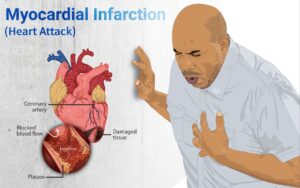
A recent report from a leading DNA testing centre, Smart DNA, has revealed that nearly 27 per cent of paternity tests conducted by the centre returned negative results, indicating that more than one in four men tested were not the biological fathers of the children in question.
The report by the centre made available to PUNCH Healthwise also revealed that there had been a notable increase in DNA tests for immigration purposes.
This surge is linked to the ongoing “Japa “ trend, where more Nigerians are seeking opportunities abroad, leading to a rise in the number of tests required for processing immigration paperwork for children.
The report also showed a significant geographical disparity in testing, with 73.1 per cent of all DNA tests conducted in Lagos.
Within the city, there was a clear divide between the Mainland and the Island, with Mainland tests comprising 67.5 per cent and Island tests 32.5 per cent.
On gender dynamics in test initiation, the report revealed that men requested 88.2 per cent of all tests, compared to 11.8 per cent by women.
Based on an ethical breakdown of paternity tests, the report added that the Yoruba group accounted for 53 per cent of the tests, while the Igbo made up 31.3 per cent, and the Hausa only 1.20 per cent.
The report also added that most tests were conducted on children aged zero to five years, reflecting a preference for early paternity confirmation.
According to the data, men aged 41 and older were the primary initiators of tests, suggesting concerns related to older paternal age.
The report also indicated that tests for male children were slightly more common than for female children, hinting at potential cultural preferences.
It further revealed that most tests of about 85.9 per cent, were conducted for personal reassurance rather than legal reasons.
Commenting on the data, the Operations Manager at Smart DNA, Elizabeth Digia, said, “The findings from this report provide valuable insights into the evolving dynamics of Nigerian families and societal trends.”
The high rate of negative paternity tests and the increase in immigration-related testing are particularly notable.
“The concentration of testing in Lagos highlights the need for broader access to DNA testing services across Nigeria. Smart DNA is committed to expanding our reach while maintaining the highest standards of accuracy and confidentiality.”
In Nigeria, paternity fraud has recently emerged as a significant concern, with increasing reports revealing that many children have been falsely attributed to men who are not their biological fathers.
The phenomenon has gained attention as DNA testing becomes more accessible, uncovering a troubling trend where a notable percentage of paternity tests reveal negative results.
One such case was reported in 2019 when a popular comedian and talk show host, Chinedu Ani, aka Nedu, found out that a son he fathered for years was not his after he had a DNA test done.
His then-wife, Uzoamaka Ohiri, said she did not intentionally give another man’s baby to him, adding that she too did not know that the child was not Nedu’s.
Uzoamaka also stressed that she did not cheat on Nedu during their brief marriage, but that she was in a relationship before meeting the comedian.
Also, in February 2021, social media went agog when a judge of the Delta State High Court, Anthony Okorodas, revealed that he was not the biological father of three children from his marriage with his former wife.
According to the National Human Genome Institute, deoxyribonucleic acid (aka DNA) is the molecule that carries genetic information for the development and functioning of an organism. DNA is made of two linked strands that wind around each other to resemble a twisted ladder — a shape known as a double helix.
Each strand has a backbone made of alternating sugar (deoxyribose) and phosphate groups. Attached to each sugar is one of four bases: adenine (A), cytosine (C), guanine (G), and thymine (T).
The two strands are connected by chemical bonds between the bases: adenine bonds with thymine, and cytosine bonds with guanine. The sequence of the bases along DNA’s backbone encodes biological information, such as the instructions for making a protein or RNA molecule.
The report published on the website of the NHGI notes that the DNA from any two people is 99.9 per cent identical, with that shared blueprint guiding the development and forming a common thread across the world.
“The differing 0.1 per cent contains variations that influence our uniqueness, which when combined with our environmental and social contexts, give us our abilities, our health, our behaviour,” it added.










